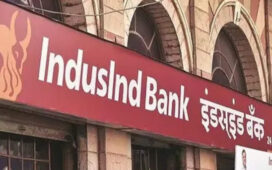Forex trading in Nigeria has evolved significantly over the last decade, becoming one of the most dynamic segments of the global currency exchange sphere. The country’s unique economic landscape, driven by oil exports, shifting government policies, and rising consumer markets, often results in sharp fluctuations in the value of the Nigerian naira (NGN). While such volatility can offer big opportunities for profit, it also comes with heightened risk. As advanced traders already know, a key ingredient for success in this ever-changing environment is having a robust, nuanced strategy that factors in local market conditions. In this article, we delve into the complexities of high-volatility trading in Nigeria, exploring how experienced forex traders can protect their capital, exploit inefficiencies, and secure sustainable returns.
The Nature of High Volatility in Nigeria’s FX Market
High volatility is not merely about wild price swings; it is a sign of intense liquidity shifts, emotional market reactions, and periodic uncertainty about the underlying economy. In the Nigerian context, several elements fuel heightened volatility. One is the volatility of oil prices—Nigeria is a major oil exporter, and sudden shifts in global crude oil benchmarks can heavily impact export revenues, government reserves, and, in turn, the value of the naira. Another factor is policy announcements by the Central Bank of Nigeria (CBN). CBN’s interventions, such as changes in interest rates, open market operations, or foreign exchange policies, can spark large price jumps. Political changes or regional developments also inject fluctuations into currency pairs involving the NGN. Understanding these local triggers, and how they interplay with international market events, forms the first step in crafting advanced trading plans that withstand—and capitalize on—volatile conditions.The Role of Macroeconomic Factors
In a high-volatility landscape, macroeconomic indicators such as inflation rates, GDP growth, and balance of trade figures significantly shape traders’ expectations. Nigeria’s persistent inflation pressure, partly tied to supply chain constraints and local infrastructure issues, can have a pronounced effect on the exchange rate. When inflation runs high, it can undermine purchasing power and lead to the depreciation of the naira relative to major currencies like the US dollar. Conversely, strong export data, rising foreign direct investment, or a surge in oil prices can boost investor confidence and prop up NGN demand. Advanced forex traders should continuously monitor these macroeconomic signals, interpret them through the lens of market sentiment, and quickly adjust positions to avoid losing streaks or seize sudden profit opportunities. This approach goes beyond mere reaction; it involves proactive speculation, where traders position themselves ahead of anticipated data releases and policy changes to capture volatile price moves early.
Technical Approaches to Volatility
Beyond simply reading macroeconomic cues, experienced traders rely on technical analysis to navigate periods of high volatility. Chart patterns, trendlines, and momentum indicators (like the Relative Strength Index and Moving Average Convergence Divergence) can offer insights into potential support and resistance levels. In Nigeria’s market, these signals can be especially sensitive, as large price moves happen quickly. Traders often use shorter timeframes (for instance, the 15-minute or hourly charts) during high-volatility conditions to capture fleeting opportunities while still employing robust risk management. Advanced methods like Fibonacci retracement and harmonic patterns may help pinpoint optimal entries and exits in the midst of rapid fluctuations. Because the Nigerian forex market can be more susceptible to sharp spikes than some more liquid, developed markets, employing tight stop-loss orders and regularly recalibrating those orders is critical. It helps to reduce the risk of catastrophic drawdowns while allowing room to capture profits from fast swings.
Fundamental Analysis in an Evolving Market
While technical analysis helps outline the ‘when’ of a trade, fundamental analysis addresses the ‘why.’ In the Nigerian market, fundamental analysis goes deeper than scanning news headlines. Traders often examine government budget allocations, foreign reserve levels, and commodity export projections to gauge the economy’s health. Forecasting central bank policy shifts is also vital. The CBN might intervene in the FX market to shore up the naira, introduce new measures for diaspora remittances, or revise bank lending rates—all of which can trigger dramatic currency movements. Advanced traders maintain multiple information channels, such as local business news, official CBN publications, and specialized economic journals to detect subtle changes in policy direction. By understanding how these factors intersect with global economic trends, traders can anticipate periods of heightened volatility and position themselves to profit from the resultant price movements.
Hedging Strategies and Risk Management
Risk management is paramount when dealing with unpredictable markets and nowhere is this more evident than in Nigeria’s forex space. Though seasoned traders might already be familiar with stop-losses and position sizing, high-volatility conditions require going a step further. One popular technique is hedging, where traders might open a position on a correlated pair or an opposing position in another instrument to offset exposure. For instance, if a trader is heavily positioned in a USD/NGN trade, they might diversify with exposures in EUR/NGN or GBP/NGN pairs, or even look to commodity-related instruments tied to Nigerian exports. Some advanced participants also consider currency futures or options contracts for more refined hedging. By paying a premium for an option, you can limit downside risk while preserving the possibility of upside gains. Although such complex instruments entail their own sets of challenges, they can form a strong defensive layer in a trader’s overall strategy.
Liquidity Management in a Volatile Environment
Even the most sophisticated strategy can unravel without proper liquidity management. In high-volatility conditions, price gaps can widen spreads dramatically, and the market depth for certain currency pairs might thin out. This is particularly prevalent in emerging market currencies like the naira. As an advanced trader, it is critical to keep a close watch on brokerage platforms to ensure your orders are executed reliably. Slippage can result in less favorable entries and exits, which can erode trading gains. One tactical move is to actively monitor trading sessions during periods of peak liquidity—often overlapping with London market hours—when institutional flows into Nigerian assets can be higher. Additionally, some traders maintain multiple broker accounts to compare spreads, execution speeds, and margin requirements, ensuring that they can swiftly switch platforms if one experiences excessive slippage or connectivity issues. Ultimately, having backup solutions for liquidity ensures that volatile periods become opportunities rather than liabilities.
Trading Psychology and Emotional Resilience
Seasoned traders understand that managing emotions is just as crucial as choosing the right technical or fundamental strategy. In Nigeria’s fast-moving forex market, it is easy to get swept up in the excitement of potential big wins or the panic of a rapidly falling naira. Emotions like greed and fear can lead to impulsive decisions, such as closing trades prematurely or over-leveraging in the pursuit of quick profits. Advanced traders develop routines that mitigate these tendencies—some might run systematic trading algorithms that remove the element of human emotion altogether, while others follow strict discipline in journaling trades and sticking to predetermined stop-losses. Regardless of the method, cultivating emotional resilience is an essential component of a profitable, long-term trading career. By maintaining calm in the face of big price swings, you can process market signals more effectively and implement your risk-management rules without hesitation.
Position Sizing and Portfolio Diversification
High-volatility conditions demand not just a refined entry and exit plan, but also meticulous position sizing. When potential gains skyrocket, the potential losses do too. Establishing a maximum percentage of your trading capital at risk per trade remains a solid pillar of advanced forex strategy, but Nigeria’s intense fluctuations might call for even tighter constraints. Diversification is another tool that helps manage risk. Although your primary focus might be on currency pairs like USD/NGN, you can look at correlated or uncorrelated instruments to spread exposure. Some advanced Nigerian traders hold positions in commodities, especially crude oil or agricultural products, given the nation’s economic dependencies. By broadening your scope, you mitigate the impact of a sudden downturn in a single market, ensuring your portfolio has multiple paths to profitability even if one segment experiences sharp declines.
Conclusion
Volatility in Nigeria’s forex market offers both an edge for bigger profits and the risk of steep losses. With thoughtful strategies and a thorough understanding of local market triggers, advanced traders can harness high volatility to maximize returns. Whether it involves leveraging short-term technical indicators, anticipating central bank interventions, or employing sophisticated hedging tactics, each component of your trading plan should be attuned to Nigeria’s distinctive economic and policy environment. Rigorous risk management and emotional discipline will remain your lifeline, especially when the market makes abrupt and unpredictable moves. As global financial markets become ever more interlinked, Nigeria’s forex space will likely continue to present exceptional trading opportunities for those prepared to adapt. By mastering these advanced strategies, you position yourself at the forefront of high-volatility forex trading in Nigeria, ready to capitalize on both the turbulence and triumphs that define this vibrant emerging market.




